It’s red, flaky, and itchy. It’s embarrassing at times. Psoriasis is a skin problem which many of you probably has but you may not know by its name. Are you one of them? If yes, then let me tell you that no amount of lotion, the cream is going to help you much. Fix your diet and see the difference.
If you are thinking why me, let me tell you psoriasis may be genetic. Now even if it’s there with any of the parents, it does not mean that you are definitely going to get it. Mostly it’s our lifestyle that triggers the problem. So no blame game, please.
Psoriasis is a chronic inflammatory autoimmune disorder. Here your immune system is confusing and attacking the healthy skin cells. What a mess! Foods can trigger this inflammation as well as can reduce it. Therefore you got to be careful about what you are putting into yourself. Follow all these basic tips to plan a regular Indian diet to control psoriasis.

12 Tips to help you plan an Indian diet for psoriasis
Life is easy when you know how can you tweak your regular dal-chawal-roti-sabji diet to control psoriasis. Incorporate all the 13 tips for the best result.
1. Go gluten-free –
I know it sounds fancy. However, following it might be challenging for you.
Gluten is a protein that is found in wheat, barley, and rye. Research shows that gluten may trigger inflammation and interferes with the absorption of other nutrients.
The table below will help you to identify foods contain gluten.
| Grain | Products |
| Wheat | Whole wheat flour (atta), refined flour (maida), bread, roti, biscuits, cookies, muffins, brownie, pastry, cake, baking items, noodles, pasta, suji (semolina), Dalia (broken wheat), etc |
| Barley | Alcohol, beer, health drink etc |
| Rye | Alcohol, beer, health drink, bread, crackers etc |
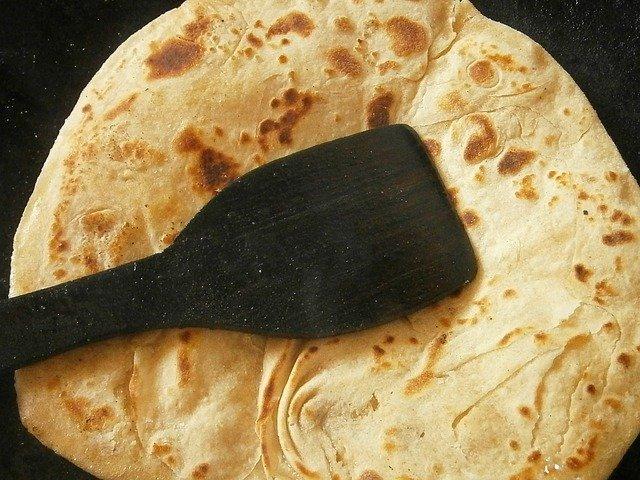
So it’s not about avoiding only roti, paratha, puri but also beer, pasta noodles, biscuits, or any ultra-processed and packaged foods for that matter. Don’t forget to check the ingredient list before eating any quick snacks or packaged foods.
Feeling lost? Thinking what else is there to eat? Well, you still have plenty.
If you can’t really manage without wheat, you may think of trying khapli wheat (emmer wheat) which is known for no or low gluten content. However, avoiding any chance of gluten consumption is the smartest option.
2. Enjoy rice
When wheat, barley, rye, and its products are a big NO for you, feel free to add rice, millets, corn, buckwheat/ kuttu, quinoa to your daily diet. Feeling relaxed? Let’s have a look at what all can you eat without any fear.
List of cereals you can still enjoy –
| Grain | Product |
| Rice | Puffed rice (Murmura), flaked rice (chirwa/ poha), popped rice (khoi/kheel), broken rice (khud) |
| Millet – jowar/ bajra/ ragi/ foxtail millet etc |
Millet flour, millet biscuits/cookies, millet bread, millet roti etc |
| Buckwheat/ kuttu | Kuttu flour |
| Corn | Roasted corn, boiled corn, popcorn |
| Quinoa | |
| Oats | Rolled oats, steel cut oats etc |
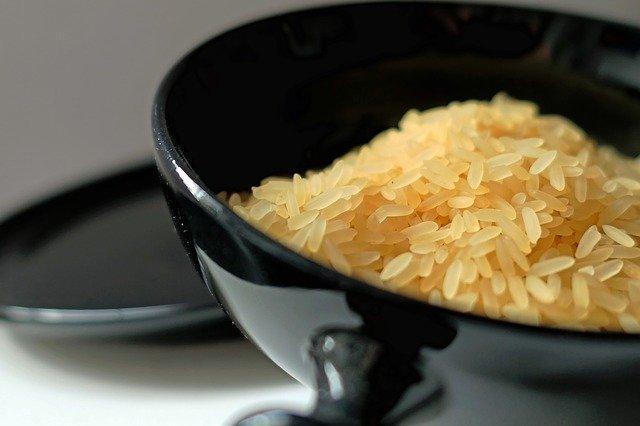
Please note, high blood glucose levels for a longer period create oxidative stress which is pro-inflammatory. Therefore it’s not only about what you eat but also pay attention to how much are you eating and the combination you are having for each meal.
Choose any of the grain or product as per your tradition, season, and preference but consume in moderation. Try to combine your grain with pulse or vegetables to keep control over blood glucose level. A steady blood glucose level is essential for controlling your weight as well as inflammation.
3. Avoid milk and milk products
If you are a milk fan, it’s bad news for you. Research suggests that dairy can cause inflammation and avoiding dairy products found to be beneficial for controlling psoriasis in many cases.
List to guide you the milk products and foods that you must avoid –
| Milk products | Foods contain milk |
| Curd Butter milk Lassi Chena Paneer Cheese |
Icecream Cream Milk solids in ultra-processed and packaged foods like biscuits, health drink, cheese pasta, baked items, creamy soup, cake frosting, mayonnaise, dip/ sauce containing milk |

Are you thinking of alternatives? Planning to start soy milk/ almond milk/ hemp milk etc? It’s not necessary if you are having a balanced diet. However, if you wish feel free to try some.
However, don’t think of adding lactose-free milk to your diet. Milk creates inflammation generally due to the presence of specific milk fat – a polyunsaturated fatty acid (PUFA) called arachidonic acid. So lactose (milk carbohydrate) free milk won’t help.
4. Make your distance from red meat, egg
Red meat, processed meat like sausage, salami, meatballs, bacon, etc, egg and egg-containing dishes are better to avoid controlling psoriasis. Just like milk and milk products these foods also contain PUFA arachidonic acid –which gets converted to inflammatory compounds easily.
Sauce / dip often contain egg/ milk, therefore be careful and always check the ingredient list.
In the period when psoriasis is under control, you may think of having egg whites 2-3 times a week. However, during a psoriasis attack, it’s better to avoid the egg completely.
Feel free to consume fish, lean meat like chicken in moderation. Fish, especially fatty fish contain omega 3 fatty acid. Adding fish in daily diet found to be helpful for psoriasis lesions.
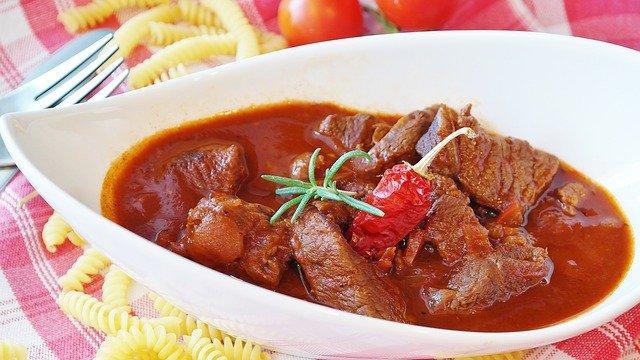
5. Trust on pulses
Remember, your protein requirement is still the same – 0.8-1 g/kg body weight. If you are vegetarian and you can’t take milk and milk products, intake of pulse/ sprout on daily basis is essential. Bring a variety of pulses in regular meals. Add two small to medium bowls of dal every day. Consider having sprouts in the morning or roasted chana in the evening.
Follow the ways to add pulse in your diet –
- Sprouts
- Roasted chana
- Sattu (roasted Bengal gram flour)
- Besan chilla
- Dhokla
- Regular Dal
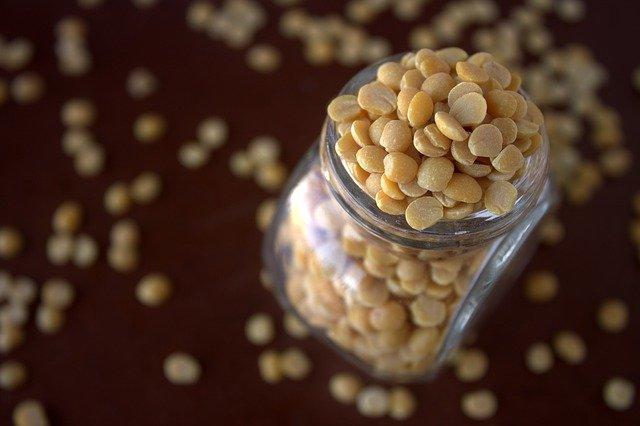
6. Say no to ultra-processed and packaged foods
It doesn’t matter how beautifully they advertise these products. There is no health condition that suggests consuming ultra-processed and packaged foods. It’s evident that these foods are potential reason to cause inflammation because of the presence of –
- Refined flour
- Refined sugar
- Hidden sugar (don’t forget, there are at least 59 names of sugar)
- Refined oil
- Milk solids
- Too much of sodium
Refined flour contains gluten. Refined sugar or any other hidden sugar creates an insulin spike. Refined oil is high in PUFA, omega 6 fatty acid. All these conditions influence inflammation and make psoriasis worst.
Say a big NO to all instant, ready to eat, or ready to cook foods – eg- instant noodles, instant pasta, instant popcorn, instant soup, packaged fruit/vegetable juice, biscuits, bhujia, namkeen, sauce, dip, salad dressing, etc.
You pick any ultra-processed food; you will get to see2-3 of these ingredients on the list. All of these 5 ingredients are inflammatory in nature. Therefore there is no way out other than saying a clear NO to these foods.

7. Switch to unrefined oil
Your cooking medium has to have good quality. It’s the only ingredient that is more or less constant in daily diet. Stay away from refined oil – colorless, flavorless liquid rather invests little extra money to get unrefined oil. Pick your oil as per tradition – kachhi ghani mustard oil, double-filtered groundnut oil, sesame oil, cold-pressed coconut oil, etc.
Remember the processing technology makes the difference in the quality of the oil. Avoid intake of deep-fried, oily foods.
8. Quit smoking and drinking
Just like processed foods, smoking and consuming beer and other alcohol have no health benefits. Both create oxidative stress and are major trigger points for inflammation. Say no to commercial energy drinks, sports drinks as well as carbonated beverages. These drinks contain a huge amount of sugar or artificial sweeteners (in the zero sugar drink) and both are bad for inflammation.
9. Stay away from nightshade vegetables
This one is tough. Avoiding nightshade vegetables i.e potato, brinjal, tomato, bell pepper, and red chili (paprika and cayenne pepper) from the regular Indian diet is quite a challenge.
Research shows that nightshades vegetables contain solanine, an alkaloid, which interfere with our digestion and may flare up inflammation.
Try to avoid these vegetables as much as possible especially during psoriasis attacks. You may indulge in these once or twice a week while psoriasis is under control.
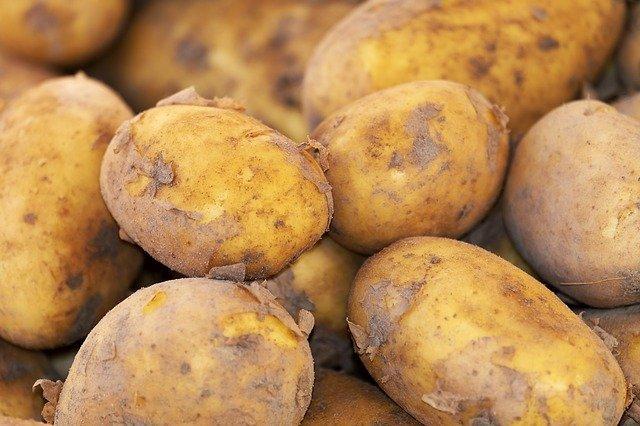
10. Include green and other colored vegetables –
When you specifically need to avoid nightshade vegetables, there is no restriction for green leafy vegetables or dark-colored vegetables. These vegetables are loaded with antioxidants, phytonutrients which helps to keep inflammation in check.
Add spinach, coriander leaves, radish leaves, fenugreek leaves, and mint leaves, etc on daily basis. Ensure intake of cauliflower, cabbage, beetroot, carrot, beans, mushroom, beetroot, gourd, yam, sweet potato, pumpkin, cucumber, onion, garlic, etc. However, your choice of vegetables may get lesser once one shave any gastrointestinal issue along with psoriasis.
Start your day with a glass of green juice/gourd juice/ vegetable juice. Try to incorporate chopped vegetables along with breakfast/ evening snack. Continue to have the usual sabzi along with your lunch and dinner.
11. Nuts every day
Nuts and seeds are your best friend for 3 particular reasons –
- Great source of omega 3 fatty acid, essential for keeping inflammation under control
- Good source of protein, especially for vegetarians. Since milk and milk product, eggs are to be avoided in psoriasis, the choice for protein get only restricted to pulses. Nuts and seeds are again a decent source of protein.
- It also provides dietary fiber, essential vitamins, and minerals like calcium, potassium, zinc, magnesium, vitamin B complex, and vitamin E.
Consume a fistful of walnut, flaxseed, almonds, chia seeds, peanut, pumpkin seeds, sunflower seeds, etc during a hunger pang. Remember just a fistful of it, not more.
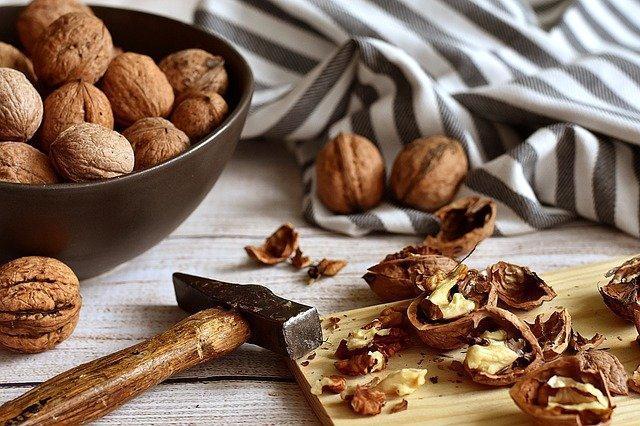
12. Choose fruit carefully
There is no doubt that fruits are a strong part of an anti-inflammatory diet. They are rich in phytonutrients, antioxidants, essential micronutrients, soluble and insoluble fibers, etc. So you have many reasons to say yes to fruit.
However, research shows that consuming citrus fruit in psoriasis may increase the symptoms. Therefore stay very careful. If you have faced difficulties digesting citrus fruits – lime, lemon, sour grapefruit, orange, mosambi, etc – avoid these completely during a psoriasis attack. Otherwise, you may take these sour fruits but in moderation. Citrus fruits are considered a common allergen and any allergy in psoriasis may flare up the symptoms.
Consume other fruits – banana, apple, watermelon, papaya, ber, guava, Jamun, pear, custard apple, etc as per the season without any hesitation.
Consume two fruits a day and always try to start your day with a fruit.
Follow the table to select fruit in psoriasis –
| Fruits to avoid or to take in moderation | Fruits safe to consume |
| Any sour fruit- lemon, amla, sour grape fruit, mosambi, orange |
Banana, apple, watermelon, papaya, ber, guava, jamun, pear, custard apple Sapota |

List of essential nutrients and it’s sources suitable for psoriasis patients
| Micronutrients | Suitable sources for psoriasis patients | Why important? |
| Vitamin B 12 | supplements | Necessary for cell reproduction, reduce inflammation, |
| Selenium | Walnut, grains | Influence immune system, make immune cell resistant to oxidative stress |
| Vitamin A | Yellow, red, orange-colored fruits and vegetables, fatty fish | Powerful antioxidant – Reduce oxidative stress & control inflammation |
| Vitamin C | Green leafy vegetables, guava | |
| Vitamin E | Nuts and seeds, vegetable oil | |
| Vitamin D | Sun light, fortified oil, fatty fish, supplements |
Bottom line
Every human body is unique. People experience allergies to various foods. Stay alert to see if any food is causing you allergy or not.
If you have psoriasis you must have experienced a psoriasis attack i.e the time when the symptoms get flared up and go completely out of control. There are also phases when symptoms subside for a period of time. For many, it goes in a cyclic manner. Develop mindful eating following your cycle.
Control your diet completely during the psoriasis attack. An otherwise little bit of indulgence in cautious foods is fine. Follow overall a healthy, balanced and anti-inflammatory diet. Try to maintain a healthy weight and normal glucose level.
In the end, maintain good hygiene practice, manage your stress. Stress induces inflammation to many folds. So if you want to control psoriasis, you must learn to de-stress yourself. All the best. Stay happily healthy.

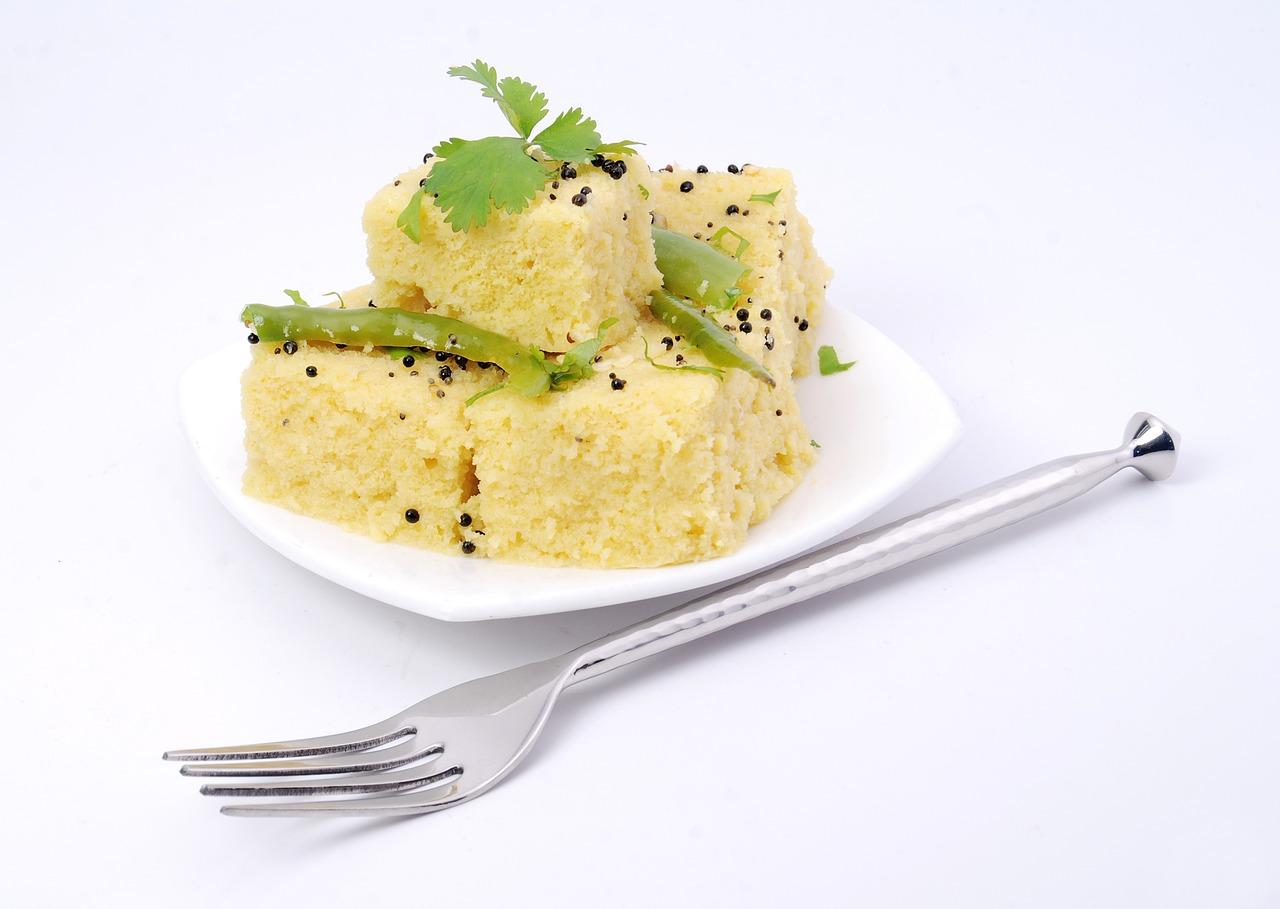
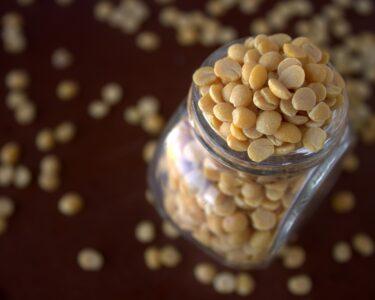

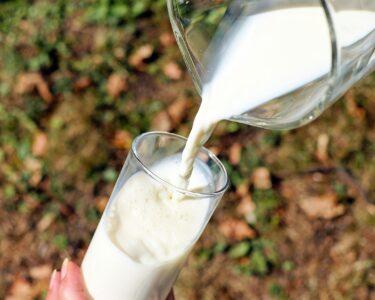
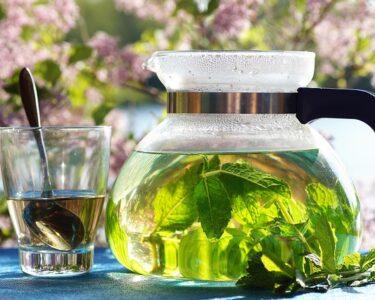
51 Comments